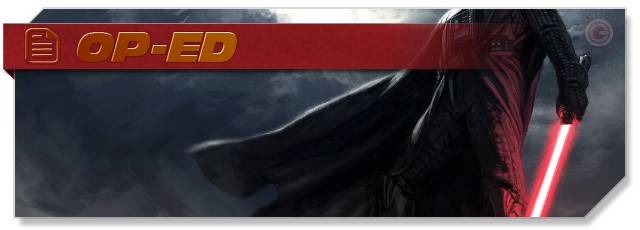Just like all other things on Earth, MMOs also have a limited lifetime. After being pictured, designed and developed, they’re living their lives satisfying their entire fan base until their death ultimately arrives. Some of them perhaps disappear way to early and lots of them then still occupy a special place in their fans’ hearts. This might be a sad fact, but it’s also a particularly interesting one when you’re considering it analytically, which leads to the simple question of "Why do MMO games dies?"
The first answer we easily came up with is the most common reason as well: due to the fact that they fail. Without wanting to appear disrespectful here, we’re honestly afraid there isn’t any other way to formulate it when it first and foremost comes to the multitude of clones that are uninspired copies of a copy of a copy of a specific title that has had huge success. Those MMOs are primarily browser-based free-to-play titles that are typically developed without a passionate team behind, which only has recourse to a limited budget and simply uses a tested and proven style and formula already present in lots of other games, without the slightest attempt at adding anything unique to the genre or the gameplay. The sole purpose of those games is to attract users with their frequently deceptive images, descriptions and webpages in order to fleece them of their time and money before they are left behind for a new MMO that is exactly the same and finally shut down. The lifetime of games of that type is extremely short and as they just aren’t meant to last, their death is already included in the company’s calculation and just a matter of (a not that long period of) time.
However, there are other larger productions with more importance and frequently huge franchises or companies in the background, which perhaps have been closed down too early as well. A few examples would be Vanguard: Saga of Heroes, Star Wars Galaxies (SWG) and The Matrix Online (MxO), all of which were full-featured high-quality products and huge productions we’re unfortunately unable to still play these days. Even in the case that you’ve never heard anything about them, almost everyone among you won’t most likely be unfamiliar with the Star Wars or the Matrix franchise, which allows for imagining the magnitude of these games. Why have they been closed then whereas others, e.g. WoW or Lineage II, are still alive and kicking? Let’s have a closer look at each of them.
Among our three examples, The Matrix Online is the one that had the shortest life. Released after the trilogy had already been concluded, the MMO only existed from 2005 until 2009 when SOE closed it forever, as there were less than 500 active users left. Despite some flaws in certain regards, e.g. a repetitive structure and lacking gameplay innovation, it’s pretty safe in this case to blame the oversaturated MMO market, the lacklustre reception of the final two films as well as the diminishing interest a franchise without any expansions plans for the future for being responsible for the game’s untimely farewell.
When looking at SWG, things start to get a bit more complex. Officially launched in 2003, the game had a considerably longer lifespan, only closing down in 2011. In this specific case, the reasons for the MMO’s death evidently don’t have any relation with lacking interest in the Star Wars franchise, meaning that we’re forced to search in another field. The most loyal enthusiast describe SWG as being more than a themepark, but a true virtual world that delivered a real sandbox experience complete with fully customisable housing, player-managed settlements, one of the most in-depth crafting system of its genre and an extremely passionate community.
So which occurrences led to its inevitable closure when everything seemed that dreamlike? The reason is generally to be seen in the publisher’s decision to decrease the game’s complexity and difficulty in order to attract a wider player base and also open the game to rather casual gamers. It was continuously simplified update by update, finally rather resembling a classic themepark, a genre that tremendously grew in popularity and rapidly became the staple on the MMO market. Yet, it was its deep sandbox nature and complexity that the most loyal SWG players appreciated the most, which was completely changed by the modifying process (the climax of which was the so called Combat Update (CU)), almost resulting in a generic themepark and finally driving away even the most passionate of enthusiasts. In order to get an impression of how deep those changes went and how much they terrified veteran players, you only have to consider the fact that the CU triggered the emergence of a multitude of fan-made projects that tried to the game in its "pre-CU" state.
Poor management decisions are also able to bring on the death of a game, regardless of the title’s quality. In order to appeal to an even larger player base to make more money, the publisher made tremendous efforts to adapt their product to a trend on the market without paying attention to the loyal game community. This way, they ultimately destroyed SWG’s absolutely unique style and nature, which drove away enthusiast long-term fans, finally killing the game by their own hands.
Vanguard: Saga of Heroes is the last example of a dead MMO we want mention. Initially released in 2007, it adopted a free-to-play business model in 2012 before shutting down in the end in 2014. This giant fantasy-based MMO RPG had a classic themepark setting but aimed at offering a unique take on distinct features, with a vast and complex in-game world full of in-depth and compelling lore, a slower, rather group-oriented progression as well as unique classes, for instance, which were rather "hybrid" and considerably differed from the common classes available in lots of other MMORPG titles during that time.
There was a huge hype around this game as many gamers were searching for an MMO that could compete with the most successful titles on the market, with Vanguard having all requirements to become a huge success as well. So what occurred? The issue was that the title was released too early, still being full of bugs and incomplete, thus delivering a rather poor gaming experience in the early days. This resulted in a rapid and steady decline in subscriptions, which could only partially be stopped over time with updates and patches. Publisher and programmers worked hard to change the situation by substantially improving their game, which resulted in a minor increase in the amount of active subscribers, and the title nearly lived a 2nd youth when switching to free-to-play. However, the opportunity to become the huge hit had already passed without taking advantage of it and SOE finally shut the game down along with other titles. So in the case of Vanguard, it’s like in the saying "The first impression is also the last", which is just too sad.
The death of an MMO can have lots of possible reasons and if we had to investigate them all, giving examples for each single one, then this article would become far too long. A game’s death can be caused by bad management decisions, poor design, a poor initial impression and lots of other things, and it’s always the amount of active users that makes the difference between a vibrant and a dead MMO. Each player that abandons a game could be the decisive one to make the publisher shut it down for not being lucrative anymore. Since it doesn’t even matter in the end how good a title really is, how supportive and passionate its community is. It’s business after all, and when the costs for maintaining an MMO exceed what it is able to bring in each month (due server maintenance and frequent update development MMOs are particularly money-consuming after launch as well), then it’s time to pull the plug and say goodbye, sayonara.
Well, that’s it, folks. In case you liked our take on the reasons behind the death of MMOs, let us know and share your thoughts in a comment!







Deja tu comentario
You must be logged in to post a comment.